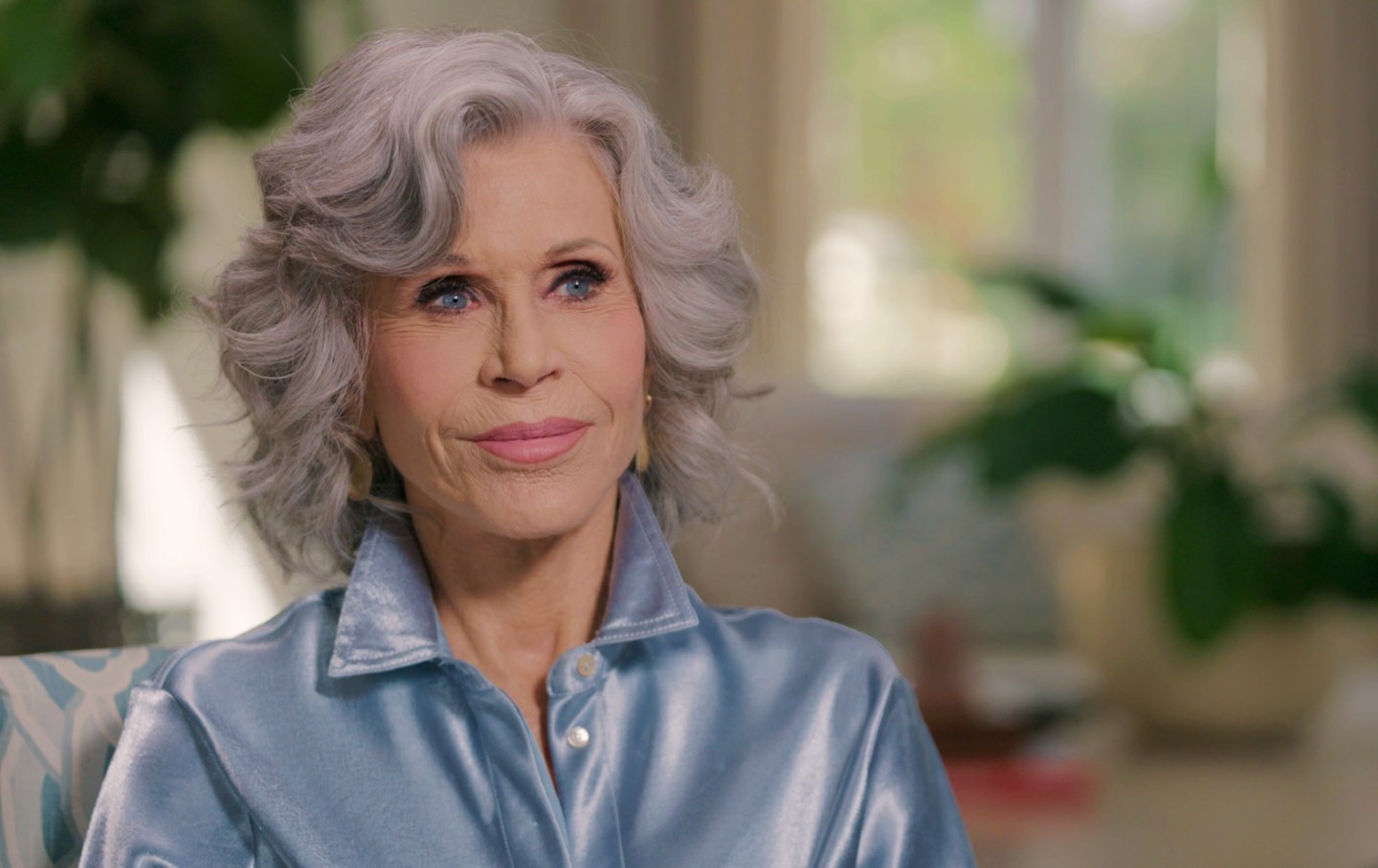
[ad_1]
Activism
/
September 23, 2024
Electing Kamala Harris and then pushing her to deliver is the only chance for climate survival, says the Hollywood actress and activist.
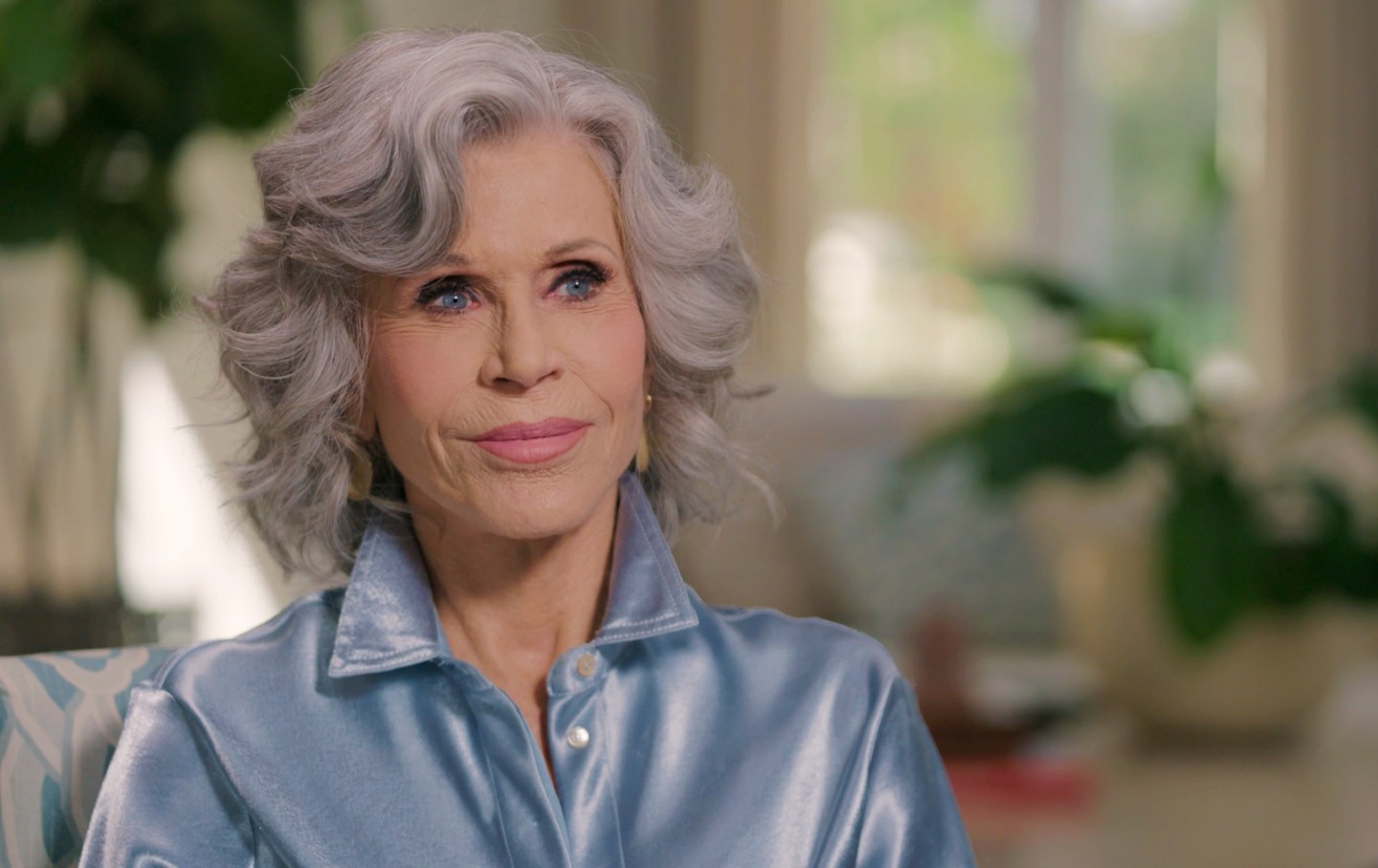
Jane Fonda speaks at the CCNow Newsmaker Interview.
(Covering Climate Now)
Young people’s understandable unhappiness with the Biden administration’s record on oil and gas drilling and the war in Gaza should not deter them from voting to block Donald Trump from again becoming president of the United States, the Hollywood actress and activist Jane Fonda has warned.
“I understand why young people are really angry, and really hurting,” Fonda said. “What I want to say to them is, ‘Do not sit this election out, no matter how angry you are. Do not vote for a third party, no matter how angry you are. Because that will elect somebody who will deny you any voice in the future of the United States…. If you really care about Gaza, vote to have a voice, so you can do something about it. And then, be ready to turn out into the streets, in the millions, and fight for it.’”
Fonda’s remarks came in a wide-ranging interview organized by the global media collaborative Covering Climate Now and conducted by The Guardian, CBS News, and Rolling Stone magazine.
Making major social change requires massive, nonviolent street protests as well as shrewd electoral organizing, Fonda argued. Drawing on more than 50 years of activism, from her anti–Vietnam War and anti-nuclear protests in the 1970s to later agitating for economic democracy, women’s rights, and, today, for climate action, Fonda said that “History shows us that…you need millions of people in the streets, but you [also] need people in the halls of power with ears and a heart to hear the protests, to hear the demands.”
Current Issue

During the Great Depression, she said, President Franklin Delano Roosevelt agreed with helping the masses of unemployed. But FDR said the public had to “make him do it,” or he could not overcome resistance from the status quo. “There is a chance for us to make them do it if it’s Kamala Harris and Tim Walz [in the White House],” she said. “There is no chance if Trump and Vance win this election.”
Scientists have repeatedly warned that greenhouse gas emissions must be cut by half by the next decade, Fonda noted, so a President Harris would have to be pushed “to stop drilling, and fracking, and mining. No new development of fossil fuels.” Trump, on the other hand, has promised to “‘drill, baby, drill.’ For once, let’s believe him. The choice is very clear: Do we vote for the future, or do we vote for burning up the planet?”
Fonda launched the Jane Fonda Climate political action committee three years ago to elect “climate champions” at all levels of government—national, state, and local. “The PAC focuses downballot—on mayors, state legislators, county councils,” she said. “It’s incredible how much effect people in these positions can have on climate issues.”
Ad Policy
Forty-two of the 60 candidates the PAC endorsed in 2022 won their races. In 2024, the PAC is providing money, voter outreach, and publicity to more than 100 candidates in key battleground states and in Fonda’s home state of California. California is “the fifth-biggest economy in the world, and an oil-producing state,” she explained, “so what happens here has an impact far broader than California.”
Fonda is also, for the first time in her life, “very involved” in a presidential campaign this year, “because of the climate emergency.” She will visit each battleground state. “And when I’m there, we give our schedule to the Harris campaign. Then they fold in Harris campaign [get-out-the-vote], volunteer recruitment, things like that, that I do for the Harris campaign and then I do them for our PAC candidates” as well.
Popular
“swipe left below to view more authors”Swipe →
Her PAC has a strict rule: It endorses only candidates who do not accept money from the fossil fuel industry. The industry’s “stranglehold over our government” explains a crucial disconnect, Fonda said: Polls show that most Americans want climate action, yet their elected officials often don’t deliver it. In California, she said, “we’ve had so many moderate Democrats that blocked the climate solutions we need because they take money from the fossil fuel industry…. It’s very hard to stand up to the people that are supporting your candidacy.”
Fonda also faulted the mainstream news media for not doing a better job of informing the public about the climate emergency and the abundance of solutions. Watching the Harris-Trump debate, she thought that “Kamala did very well.” But she “was very disturbed that the number-one crisis facing humanity right now took an hour and a half to come up and was not really addressed. People don’t understand what we are facing! The news media has to be more vigilant about tying extreme weather events to climate change. It’s starting to happen, but not enough.”
Given her years of anti-nuclear activism—including producing and starring in a hit Hollywood movie, The China Syndrome, released days before the Three Mile Island reactor accident in 1979—it’s perhaps no surprise that Fonda rejects the increasingly fashionable idea that nuclear power is a climate solution.
“Every time I speak [in public], someone asks me if these small modular reactors are a solution,” she said. “So I’ve spent time researching it, and there’s one unavoidable problem. No nuclear reactor of any kind—the traditional or the smaller or the modular, none of them—has been built in less than 10 to 20 years. We don’t have that kind of time. We have to deal with the climate crisis by the 2030s. So just on the timeline, nuclear is not a solution.” By contrast, “solar takes about four years to develop, and pretty soon it’s going to be 30 percent of the electricity in the world.”
The reason that solar—and wind and geothermal—are not prioritized over fossil fuels and nuclear, she argued, is that “big companies don’t make as much money on it.” Noting that air pollution from fossil fuels kills 9 million people a year globally, she added, “We’re being poisoned to death because of petrochemicals and the fossil fuel industry. And we [taxpayers] pay for it! We pay $20 billion a year [in government subsidies] to the fossil fuel industry, and we’re dying…. We need that industry out of our lives, off of our planet, but they run the world.”
The two-time Academy Award winner’s decades as one of the world’s biggest movie stars has given her an appreciation of the power of celebrity, and she applauds Taylor Swift for exercising that power with her endorsement of the Harris-Walz ticket.
“I think she’s awesome, amazing, and very smart,” Fonda said of Swift. “I’m very grateful and excited that she did it, and…I think it’s going to have a big impact.”
“My metaphor for myself, and other celebrities, is a repeater,” Fonda added. “When you look at a big, tall mountain, and you see these antennas on the top, those are repeaters. They pick up the signals from the valley that are weak and distribute them so that they have a larger audience…. When I’m doing the work I’m doing, I’m picking up the signals from the people who live in Wilmington and the Central Valley and Kern County and are really suffering, and the animals that can’t speak, and trying to lift them up and send them out to a broader audience. We’re repeaters. It’s a very valid thing to do.”
Climate activism is also “so much fun,” she said, and it does wonders for her mental health.
“I don’t get depressed anymore. You know, Greta Thunberg said something really great: ‘Everybody goes looking for hope. Hope is where there’s action, so look for action and hope will come.’” Hope, Fonda added, is “very different than optimism. Optimism is: ‘Everything’s gonna be fine,’ but you don’t do anything to make sure that that’s true. Hope is: ‘I’m hopeful, and I’m gonna work like hell to make it true.’”
We need your support
What’s at stake this November is the future of our democracy. Yet Nation readers know the fight for justice, equity, and peace doesn’t stop in November. Change doesn’t happen overnight. We need sustained, fearless journalism to advocate for bold ideas, expose corruption, defend our democracy, secure our bodily rights, promote peace, and protect the environment.
This month, we’re calling on you to give a monthly donation to support The Nation’s independent journalism. If you’ve read this far, I know you value our journalism that speaks truth to power in a way corporate-owned media never can. The most effective way to support The Nation is by becoming a monthly donor; this will provide us with a reliable funding base.
In the coming months, our writers will be working to bring you what you need to know—from John Nichols on the election, Elie Mystal on justice and injustice, Chris Lehmann’s reporting from inside the beltway, Joan Walsh with insightful political analysis, Jeet Heer’s crackling wit, and Amy Littlefield on the front lines of the fight for abortion access. For as little as $10 a month, you can empower our dedicated writers, editors, and fact checkers to report deeply on the most critical issues of our day.
Set up a monthly recurring donation today and join the committed community of readers who make our journalism possible for the long haul. For nearly 160 years, The Nation has stood for truth and justice—can you help us thrive for 160 more?
Onwards,
Katrina vanden Heuvel
Editorial Director and Publisher, The Nation
More from The Nation
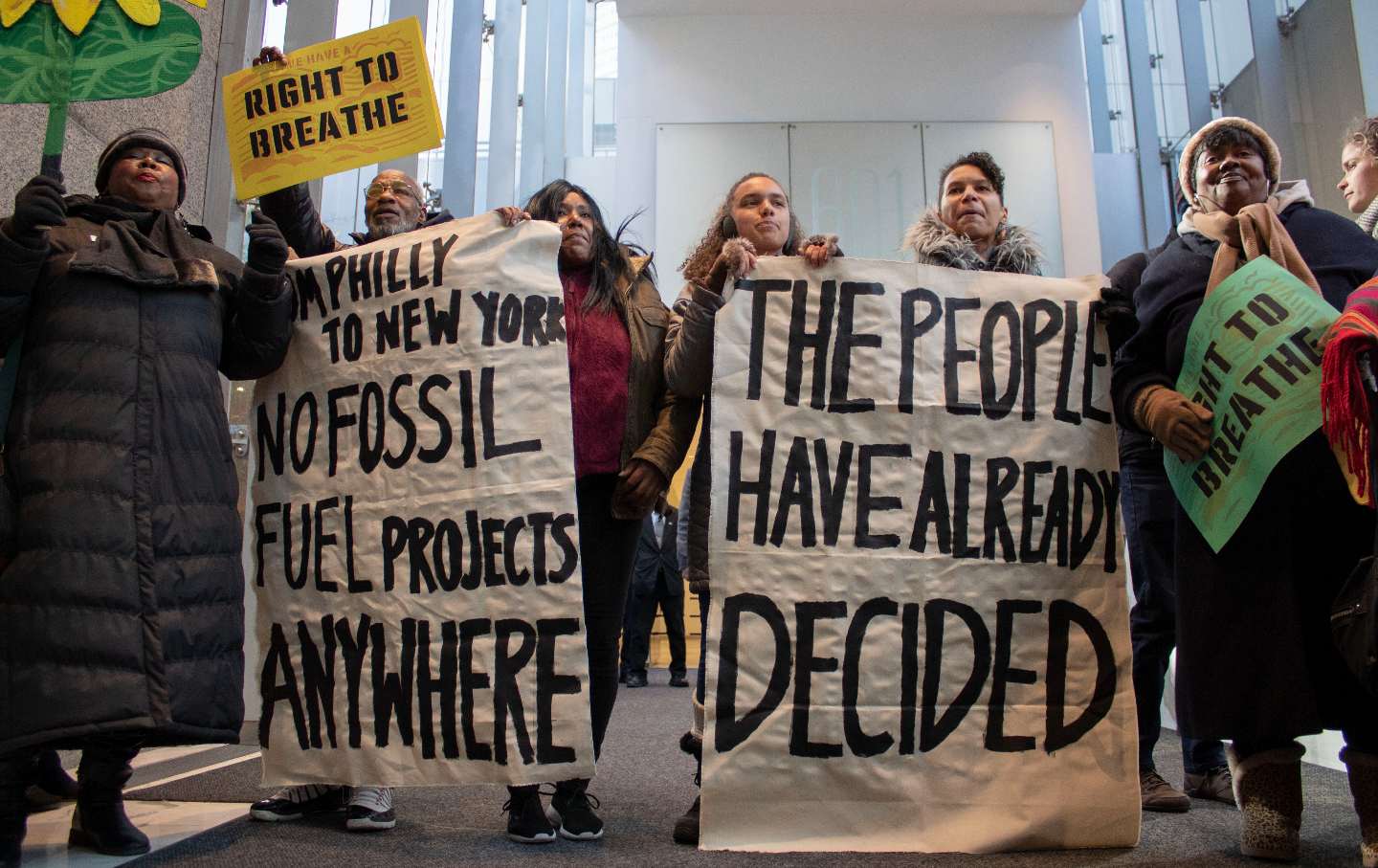
Four years after the largest oil refinery on the East Coast shut down, residents in South and Southwest Philadelphia still don’t know what will come next.
StudentNation
/
Amber X. Chen
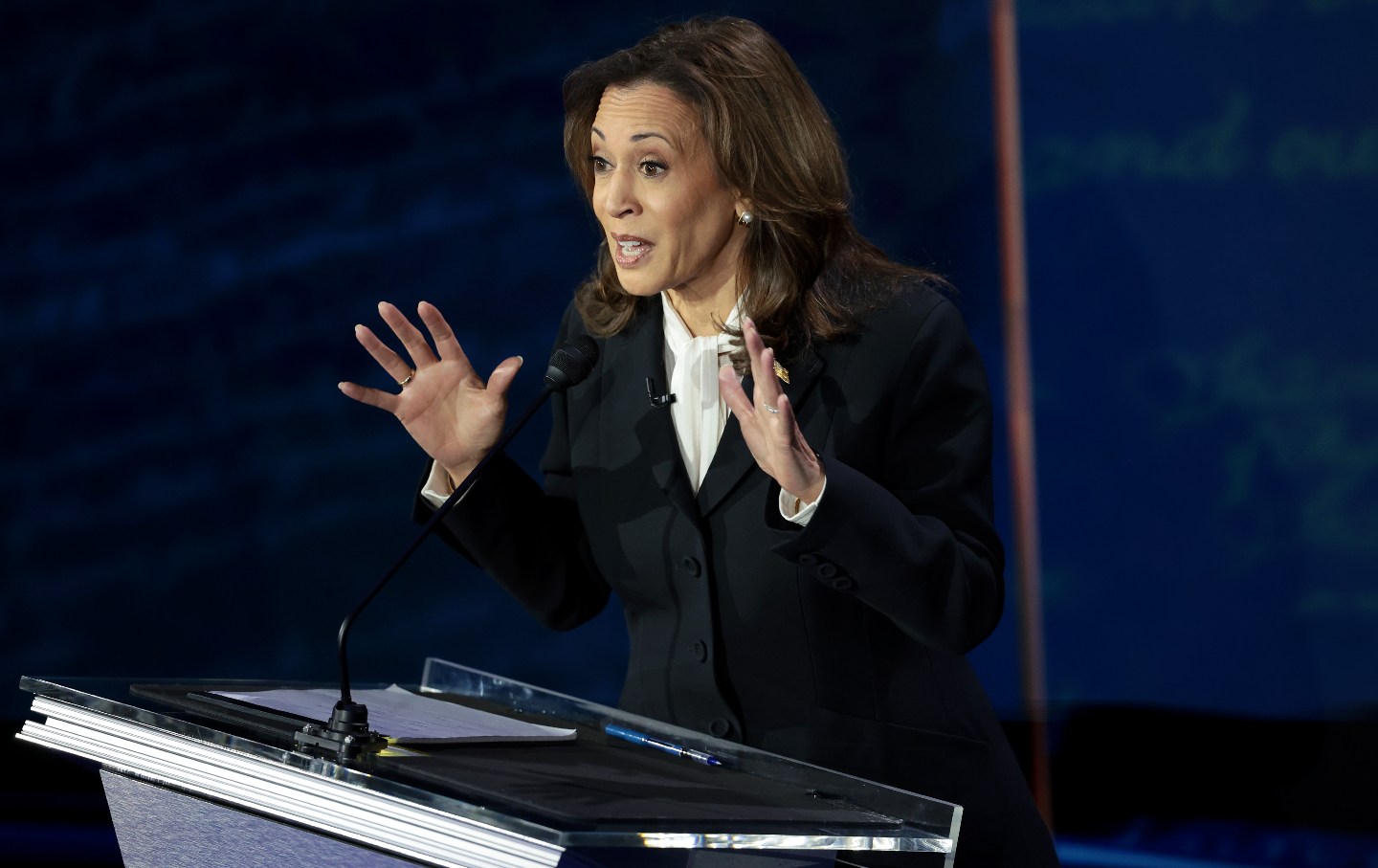
In 2019, Harris said that there was “no question” that she would pursue a federal ban on fracking. In 2024, she’s taken a different—and unnecessary—stance.
StudentNation
/
Amber X. Chen
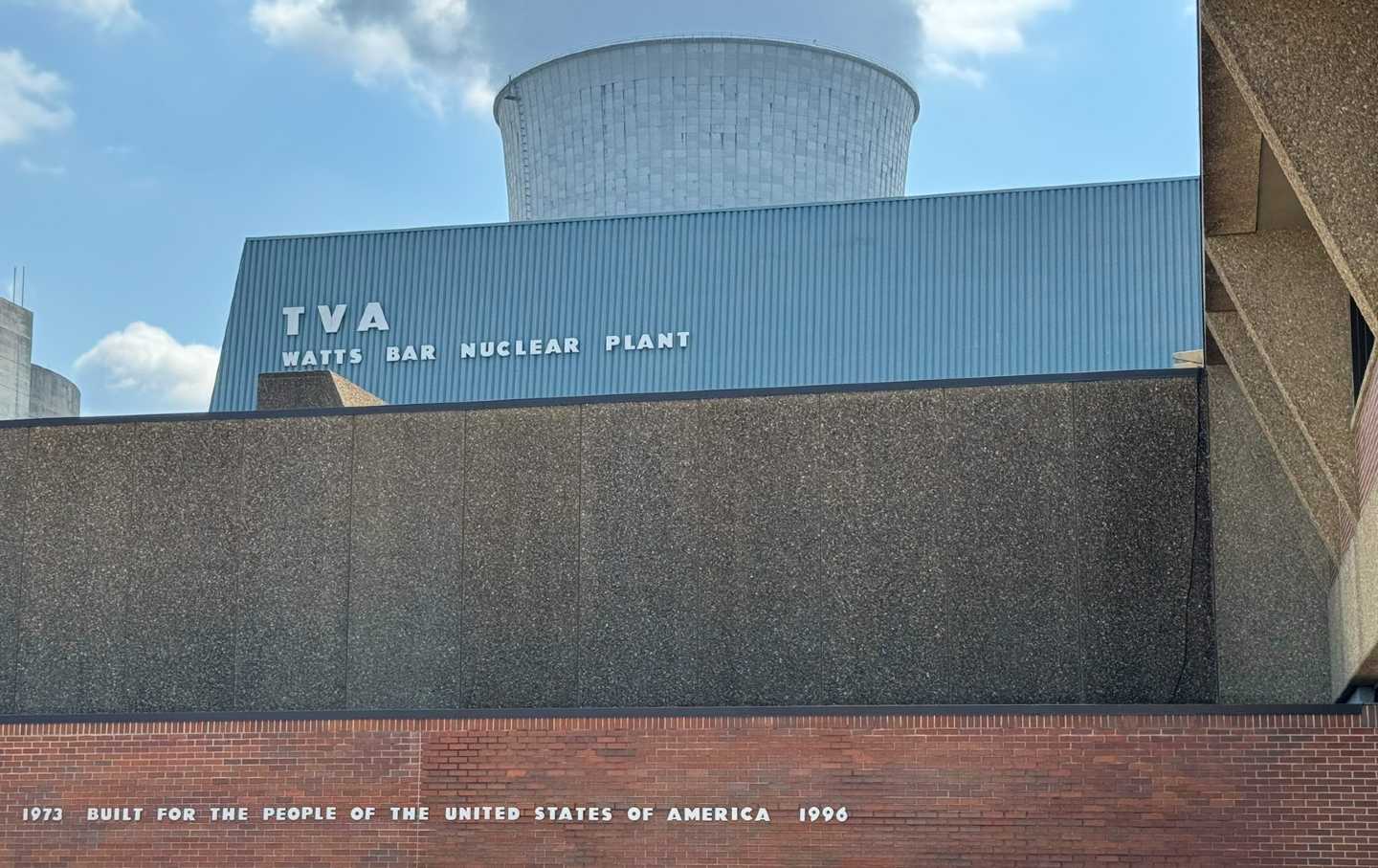
With additional funding, the Tennessee Valley Authority could provide union jobs, kick-start American industrial production, and help the world go green.
Fred Stafford
[ad_2]